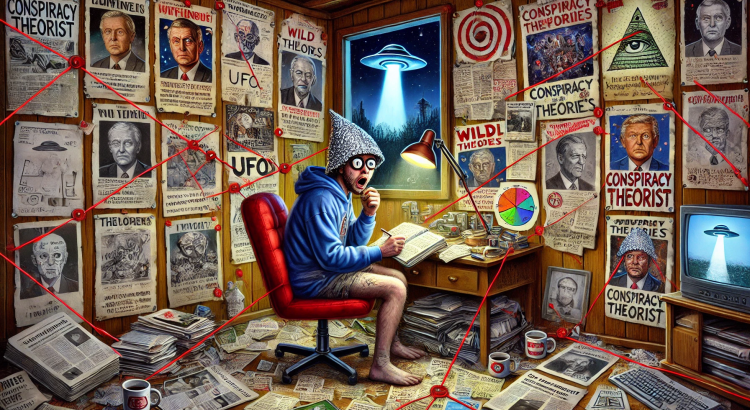Just kidding.
We experience the world through stories.*
It’s impossible not to.
Reality is too complex. Our brains can’t process all the data from our senses. We only get a summary based on predictions and preferences. See Anil Seth’s Your Brain Hallucinates Your Conscious Reality.
Stories are our mental shortcut.
And when we use these shortcuts, we encounter cognitive biases:
Jumping To Conclusions: “She didn’t reply to my text right away, so she’s mad at me.”
Black-and-White Thinking: “People are good or evil, and there’s no in-between.”
Single-Cause Fallacy: “The only reason people are poor is because they are lazy.”
These are ways of simplifying the world — and getting it wrong.
We all do this.
Cultures accept shared stories like:
1 – pigs are food, but dogs are cute pets
2 – it would be disgusting and weird to drink a pregnant woman’s breast milk, but it’s okay to drink a pregnant cow’s breast milk
3 – sexism is wrong, racism is wrong, but speciesism is totally great!
Why? Because that’s the story we grew up in. Heck, humans will eat other humans if the collective says it’s normal. See: cannibalism. You and I would likely not question that practice if we grew up with it.†
Most things we believe were simply made up by someone. They get copied and copied and copied and become “reality.”
Not only that: we are easily bored and our imaginations are powerful — so we crave the most exciting or ironic version of reality. This is how we end up with shocking news headlines, kooky conspiracy theories, and illogical executive orders.
We’ve watched too many movies and expect life to follow that clear-cut plot and dramatic structure.
But the truth is pretty dull, meaningless, or incomprehensible most of the time. It wouldn’t make a good movie. Anyone who edits a documentary knows this.
Those events we think are connected are… probably not connected. They just happen, and we imagine there is causality. See: post hoc, ergo propter hoc.
Even our personal identities are stories (usually, stories that other people told us). It’s hard to accept that our past is a sunk cost and that it should not determine what we do today. There’s no biography we need to live up to. “But… MY STORY!”
Critical thinking — seeing through the story — isn’t easy.
So, we’ll continue to confuse ourselves.
*This is an important idea from Yuval Noah Harari’s Sapiens.
†I’ve been a vegan since 2007 (with the exception of eating fish a few times and not liking it). My argument for veganism is this: it’s an easy choice for me to vote against animal enslavement, abuse, and suffering. Does Carl King actually make a difference by doing that? I hope so. That’s the story I tell myself.
